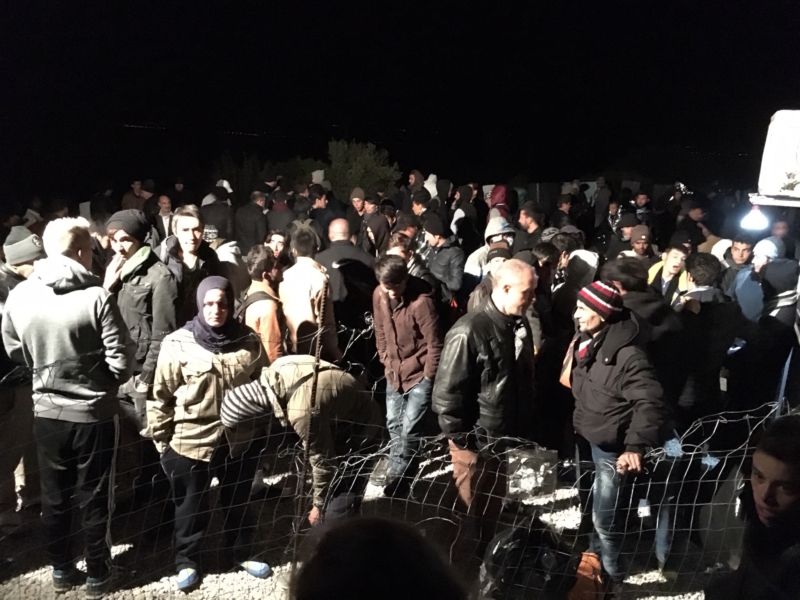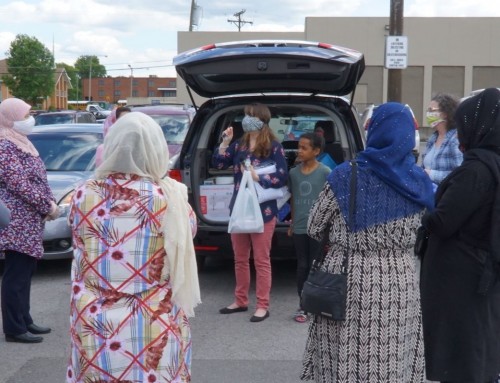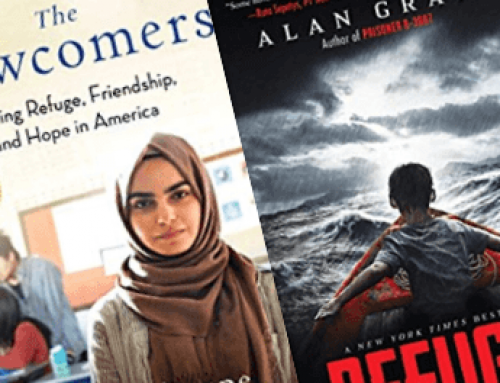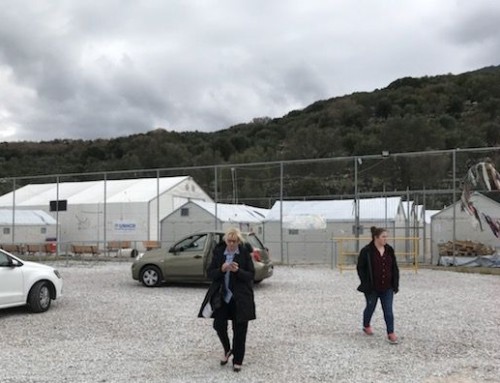Sometimes the tragedies of the world hit us like a tsunami and we feel so overwhelmed and completely helpless, drowning in the weight of it all. Even our greatest efforts, our most skillful attempts to keep our heads above water seem deeply, gloriously inadequate. It feels like the last scene of Schindler’s List, where Oskar Schindler is looking at the people he managed to save and weeps for those he was unable to rescue. One thousand and ninety eight Jews lived because of him, but there were more than six million others that he could never have helped.
The Sea of Death

LOUISA GOULIAMAKI/AFP/Getty Images
My heart was first broken by the refugee crisis in Greece the day the photo was published of Alan Kurdi dead on a beach, his life lost in a way that has always frightened me. Running from a land of death into a sea of death. What could I do? How could I save others from suffering the same fate?
It was many months later that I was finally able to travel to Greece and get hands on in helping others. Every time we entered the port where people slept in tents on asphalt in the hot sun, or drove into one of the UNHCR camps that contained multiple sports stadiums so filled with people that they were spilling out into the surrounding parking lots, that tsunami wave of sadness hit me. I felt feeble, powerless in the face of THOUSANDS of hungry and hurting people who been chased from their homes by men of malice. There were so many.
I had seen similar things before, worked with internally displaced people (IDPs) in Iraq, but never before had I had so little hope to offer. The world has chosen to forget the suffering of these people, or worse it has tried to demonize them, casting them into the same lots as the very people who had forced them to flee. It felt like our group’s efforts to help three or four families were about as useful as painting a house while it burns down around you. Would it really matter in the end?
I Did My Small Part
And then we sat and shared a meal with a family that had gotten into a rubber raft with their six month old daughter, crossed the sea of death while praying for God’s protection, and were embraced on the other side by a lovely woman who is only there because God told her to be.
They see how much God loves and cares for them because she tells them that He is the reason she is able to love and care for them. There’s the story of the man who had to physically pick up and carry his wife onto one of the boats while she kicked, punched and screamed at him because she was so afraid to die in the cold water. This story is told almost as a joke, because now on the other side they have an apartment, he has a job… a life.
The best moment of all was the text from a refugee telling that he saw how good God was because of the extraordinary kindness shown to him. How all he wanted to do was go back to reading that book, in that safe place where he had found food, shelter, and most of all Love. I hadn’t interacted with him at all, but I made that food, I freed up others to have time with him. I did my small part.
I didn’t change or save the lives of every single person I met. That is an impossible task for a finite, jetlagged human in one week. But I did help, I did love, I offered kindness and humanity. What I am capable of doing may never be enough, it will never solve all of the problems of this world. That is not my job, I leave it to God. My job is to look into the faces of broken humankind and help the ones I can. It matters to them, it matters to me.
Join us. There are many ways to help.




